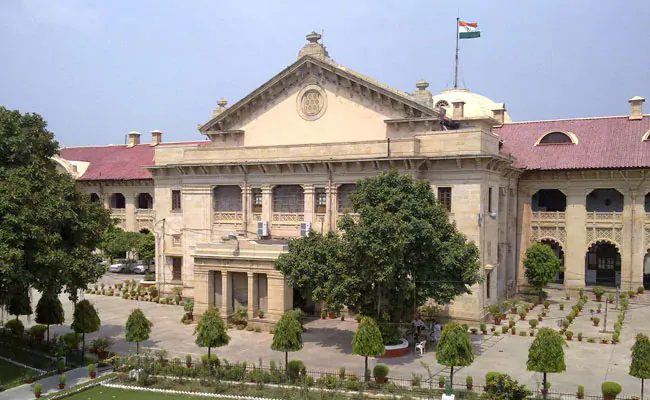
The petitioner, a retired government employee, had been ordered by a lower court to provide his wife with a fixed monthly alimony. Challenging this order, he approached the Allahabad High Court, arguing that his advanced age, limited income, and increasing medical expenses made it difficult to comply with the maintenance order. The man's legal counsel also noted that he had no other source of income and was dependent on his pension.
The respondent, however, argued that she had no independent source of income and was entirely reliant on the alimony for her sustenance. She contended that her husband's obligation to support her financially should remain in force, given that she had dedicated her life to their marriage and had no other means of financial security. The wife emphasized that without the maintenance, she would face severe economic hardship.
During the hearing, Justice Saurabh Shyam Shamshery, who presided over the case, expressed dismay at the ongoing dispute between the elderly couple. He remarked that the case was emblematic of the moral decay described in the concept of "Kalyug," where values such as respect for elders and the sanctity of marriage were deteriorating. His comments were aimed at highlighting the societal implications of family disputes involving senior citizens, which are becoming more frequent in Indian courts.
The court, while sympathizing with the husband’s plea regarding his financial situation, also recognized the wife's need for support. A delicate balance between both parties’ circumstances was considered, and the court ordered a partial reduction in the monthly maintenance amount. However, it maintained that the husband must continue to provide a regular stipend to his wife, considering her financial dependency.
This case has raised concerns about the growing number of alimony and maintenance disputes involving elderly couples, which experts believe is a reflection of shifting societal norms in India. Traditionally, older couples in India were expected to remain together in their later years, with the extended family playing a key role in their financial and emotional support. However, with the breakdown of joint family systems and the increasing independence of children, many elderly individuals are finding themselves isolated and financially insecure.
Legal experts have pointed out that the rising number of such cases is indicative of deeper issues, including the lack of social security for senior citizens in India. With limited pension schemes and inadequate health care facilities, many elderly individuals are finding it difficult to sustain themselves financially. The absence of a robust welfare system means that family disputes, such as this alimony case, are often dragged into the courts, where judges are left to balance the emotional and financial needs of the parties involved.
A senior advocate specializing in family law noted that while maintenance cases involving younger couples are more straightforward, disputes involving the elderly are far more complex. These cases often involve questions of financial capability, medical needs, and long-term care, which the courts must weigh carefully. The advocate emphasized that a compassionate approach is necessary in such cases, as the elderly often have limited options and resources at their disposal.
In recent years, Indian courts have increasingly dealt with similar cases, where elderly individuals seek relief from financial obligations due to their advanced age or deteriorating health. These cases have forced the judiciary to consider the unique challenges faced by senior citizens, many of whom live on fixed incomes and are burdened by medical expenses. The courts have also had to take into account the growing trend of elder abuse, where children or other family members neglect or exploit older relatives for financial gain.
Social commentators have highlighted that these cases reflect a broader cultural shift in India, where the traditional family structure is being eroded by modernization and economic pressures. With more young people migrating to urban areas for work and leaving behind their elderly parents in rural or semi-urban regions, older couples are increasingly finding themselves without the support they once relied on. This isolation, coupled with financial insecurity, is leading to a surge in legal disputes, particularly those involving maintenance and alimony.
The Allahabad High Court’s remarks about "Kalyug" resonate with many who view the increasing number of elderly individuals facing legal battles over alimony as a symptom of larger societal changes. The case underscores the need for greater awareness of the challenges faced by senior citizens, both in terms of financial security and emotional well-being.
